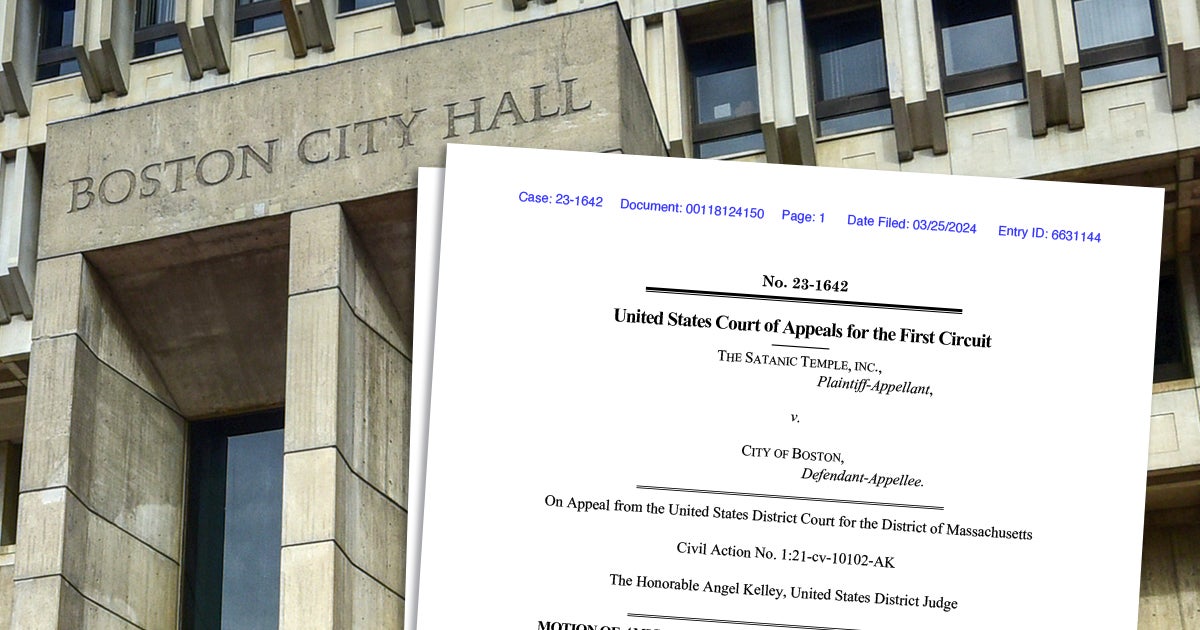
by Jorge Gomez • 4 min read
First Liberty filed a friend-of-the-court brief in a federal appeals court this week supporting longstanding legislative prayer practices.
The city of Boston denied the Satanic Temple’s demand to give an opening prayer at a city council meeting. This is what the Temple would have said if given the opportunity:
“Let us stand now unavowed and unfettered by arcane doctrines borne of fearful minds in darkened times. Let us embrace the Luciferian impulse to eat of the tree of knowledge and dissipate our blissful and comforting delusions of old. Let us demand that individuals be judged for their concrete actions not their fealty to arbitrary social norms and elusory categorizations. Let us reason our solutions with agnosticism in all things, holding fast only to that which is demonstrably true. Let us stand firm against any and all arbitrary authority that threatens the personal sovereignty of one or of all. That which will not bend must break and that which can be destroyed by the truth should never be spared its demise. It is done. Hail Satan.”
The Satanic Temple (TST) sued, claiming the city violated its First Amendment rights. Last fall, a federal district judge ruled against the Satanists, explaining that Boston’s longstanding practice of inviting guest chaplains to open city council meetings with invocations was constitutional. The district court held that Boston did not violate the First Amendment when it declined the Satanic Temple’s demand to receive an invitation.
Our brief supports the City of Boston in arguing that the lower court’s ruling against the Satanic Temple should be upheld. We explain that TST is making arguments that misinterpret the First Amendment and what legal precedent says about legislative prayer practices.
Is the city of Boston required to grant TST’s request for an opening prayer? Our brief argues that it is not.
Legislative prayer is a longstanding practice rooted in the history and tradition of our country. That’s the legal test that courts are required to apply in these cases. This standard was most recently articulated in our case, Kennedy v Bremerton School District (2022), in which the nation’s highest court said the “Establishment Clause must be interpreted by reference to historical practices and understandings.”
Legislatures going back to the first Congress invited chaplains to open with prayer. But legislative prayer is different than a public forum, and the First Amendment does not require a legislature to invite anyone who asks.
Our attorneys point out that the Establishment Clause does “not require that a legislative body ensure a kind of equal public access” in its prayer custom. This means the Constitution does not impose an “all comers” requirement on legislatures that choose to open in prayer.
Our attorneys point out that the Satanists’ proposed “prayer” would be “intolerable to the tradition of solemn, respectful prayer,” which the Supreme Court explains must not disparage those of other faiths.
We conclude by urging the appeals court to ”reject the Satanic Temple’s invitation to flout binding precedent” and to instead “affirm the district court’s judgment.”